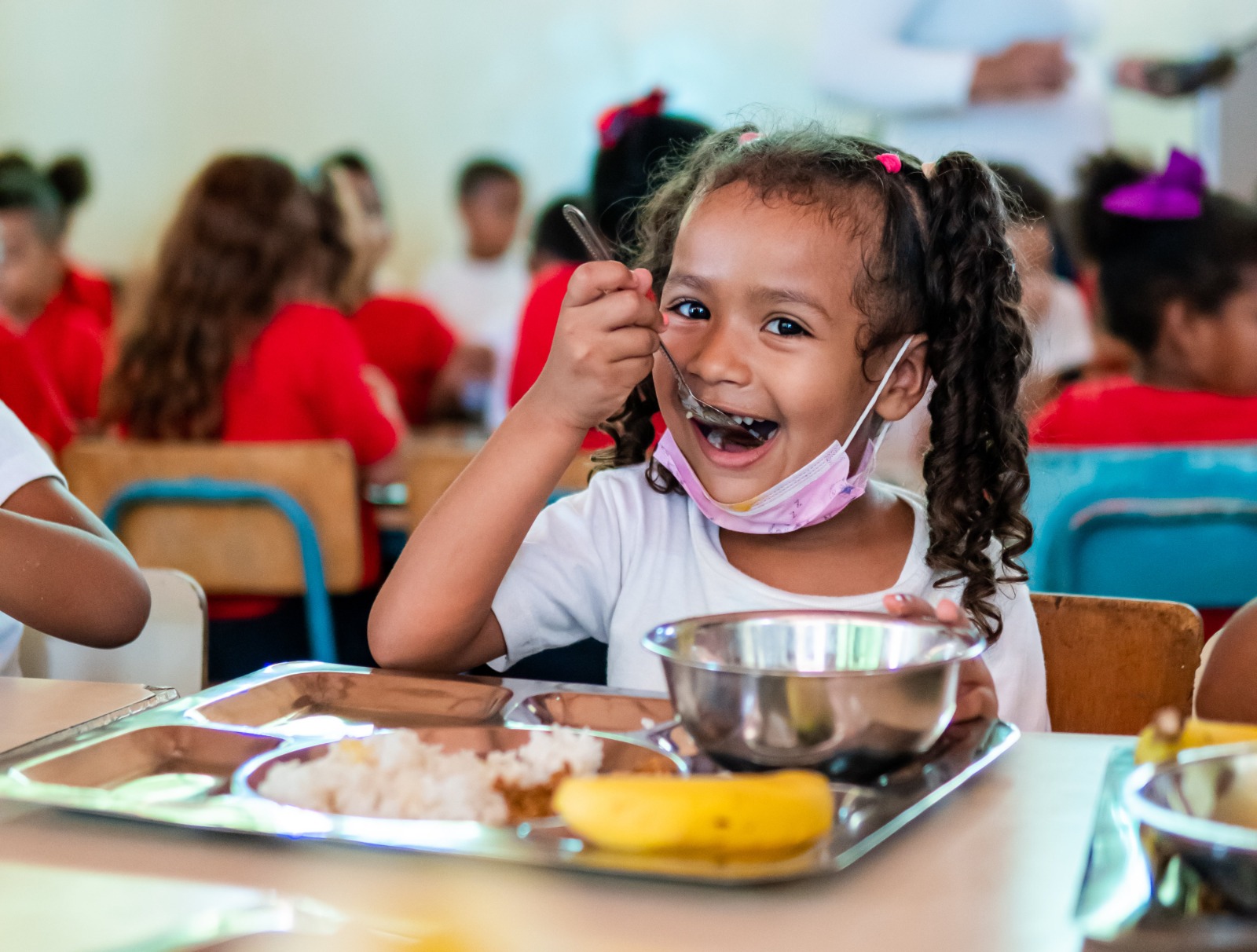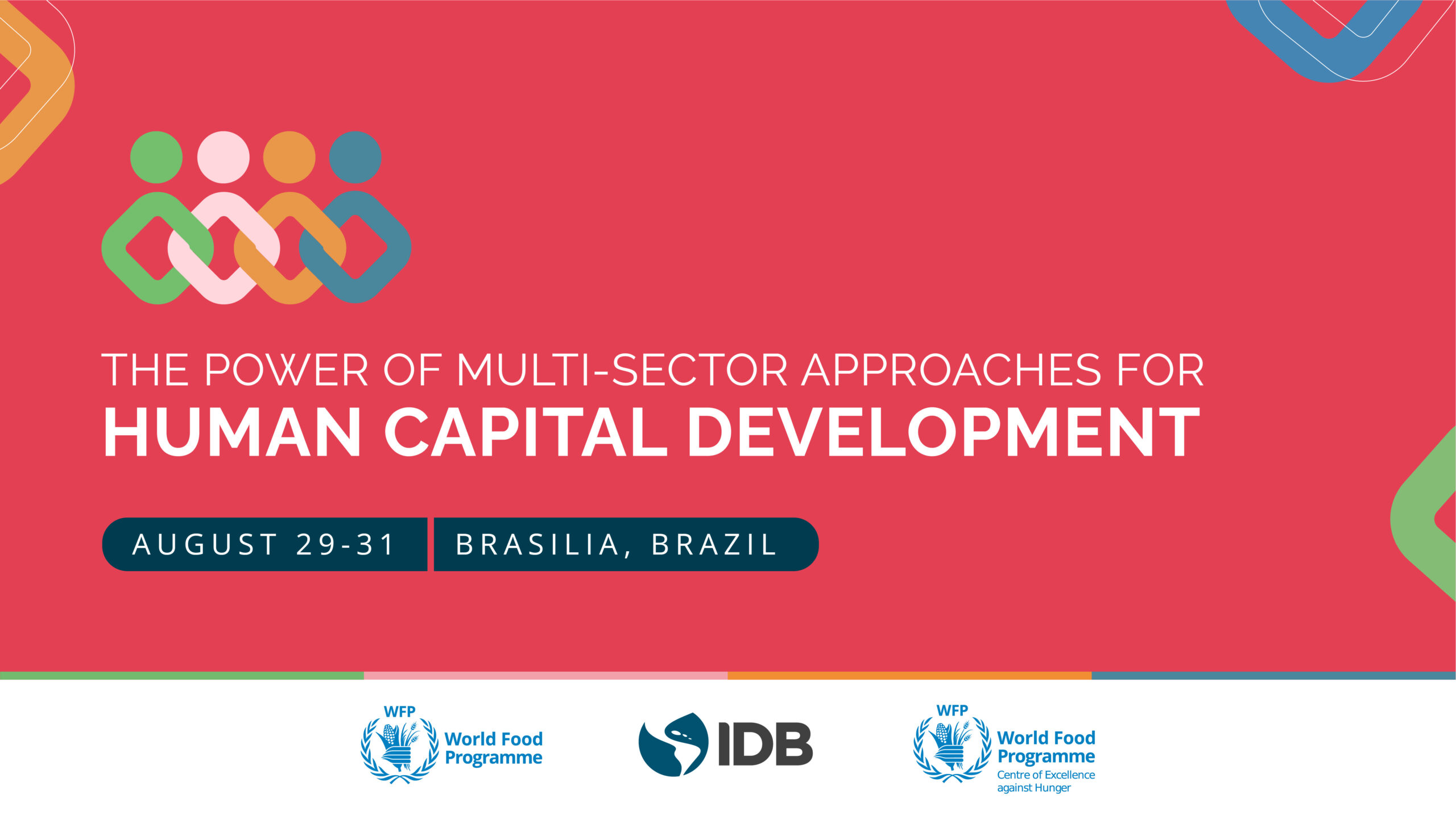 BRASILIA – Around 200 participants from more than 20 countries, including government ministers, representatives from international financial institutions and the United Nations are set to gather in Brasilia on 29-31 August to strengthen commitments and chart out pathways to strengthen human capital in the region so that every person is able to reach their full potential.
BRASILIA – Around 200 participants from more than 20 countries, including government ministers, representatives from international financial institutions and the United Nations are set to gather in Brasilia on 29-31 August to strengthen commitments and chart out pathways to strengthen human capital in the region so that every person is able to reach their full potential.
The three-day high-level meeting, organized in close collaboration with the government of Brazil, aims to create a conducive space for countries from across the region to boost multi-sector approaches linking education, food security and nutrition for human capital development, using two complementary approaches: school feeding and social protection systems.
The ‘Power of Multi-Sector Approaches for Human Capital Development” event, convened by the United Nations World Food Programme (WFP) and the Inter-American Development Bank (IDB), will be officially inaugurated on Tuesday 29 August at 09:00 (GMT-3).
The region is grappling with multiple and intertwined crises, with climate shocks, complex migration challenges, a slow pandemic recovery and debt distress, and the ripple effect of the crisis in Ukraine. All these challenges have devastating consequences for millions of vulnerable people in Latin America and the Caribbean faced with job losses, shrinking incomes, and a worsening of living standards. 133 million people in the region cannot afford a healthy diet, which ranks the most expensive in the world, and over 118 million girls and boys are at risk of dropping out of school or not learning.
“This event is a chance to learn from each other’s good practices and maintain the commitment of countries in this region to lift vulnerable people out of poverty. This will be done by making current social safety nets stronger,” said Lola Castro, WFP Regional Director for Latin America and the Caribbean. “We can create more equal societies where everyone has access to essential services to improve their skills, health, food security and knowledge throughout their lives. This way, every child, every person may reach their full potential and build our human capital.”
The report on “State of School Feeding in Latin America and the Caribbean 2022” produced by WFP and the IDB will be launched at the event and offers the latest evidence on the impact that school feeding programmes – that reach more than 80 million children – have on education and nutrition.
“Teachers know what hunger looks like in the classroom: fidgeting, waning attention spans, and tempers getting shorter. Teaching and learning become much more challenging when children are hungry or malnourished,” said Mercedes Mateo, IDB Chief of Education. “School meals are an opportunity to help solve the learning crisis in the region by protecting the educational trajectories of millions of children and youth. We are eager to work with partners and governments, to strengthen these programs and protect the future of an entire generation in Latin America and the Caribbean,” she added.
This initiative will build on the momentum created by the IX School Feeding Forum for Latin America and the Caribbean hosted by WFP in Barranquilla, Colombia in April 2022 and the Transforming Education Summit hosted by UN Secretary General in New York, USA in September 2022. The outcome of the event is also expected to feed into the October 2023 Global Coalition for School Meals meeting in Paris.
Another regional study on “Social Protection Pathways to Nutrition” will be launched during the event. It will provide evidence that social protection systems can effectively contribute to better food security and nutrition, but they need to work together with other systems and sectors, food and health in particular. Large social protection programmes played a key role in supporting families during the pandemic, with more than 500 measures carried out in 33 countries between 2020 and 2022. When adequately designed they can play a crucial part in putting the region back on track for the ‘Zero Hunger’ Sustainable Development Goal by 2030.
The event takes place in Brasilia, where the WFP Centre of Excellence against Hunger is located. The Centre is a global hub for South-South public policy dialogue, facilitating knowledge exchanges and capacity building to promote action against hunger.

Note to editors:
The launch of the “State of School Feeding in Latin America and the Caribbean” study will be streamed live in English and Spanish on 29 August, at 11:30–12:30 GMT-3 / UTC-3
The launch of the “Social Protection Pathways to Nutrition” study will be streamed live in English and Spanish on 30 August 9:15–10:30 GMT-3 / UTC-3
# # #
The United Nations World Food Programme is the world’s largest humanitarian organization saving lives in emergencies and using food assistance to build a pathway to peace, stability and prosperity for people recovering from conflict, disasters and the impact of climate change.
The Inter-American Development Bank is devoted to improving lives. Established in 1959, the IDB is a leading source of long-term financing for economic, social and institutional development in Latin America and the Caribbean. The IDB also conducts cutting-edge research and provides policy advice, technical assistance and training to public- and
private-sector clients throughout the region. Take our virtual tour.
The WFP Centre of Excellence against Hunger in Brazil is a global hub for South-South policy dialogue, learning, capacity development and technical assistance to promote actions against hunger.
Follow us on X: @wfp_media, @wfp_es, @WFPBrasil, @el_BID, @the_IDB
For more information please contact
Alexis Masciarelli, WFP/ Panama City, Mob. +507 6671 5355, [email protected]
Ericka Galindo, WFP/ Brasilia, Mob. + 55 61 99260-9835, [email protected]
Valentina Gimenez, IDB / Washington, DC. Mob. +1 240 224 74 26, [email protected]
Iuri Dantas, IDB/Brasilia, Mob. +55-11-99858-1976, [email protected]




